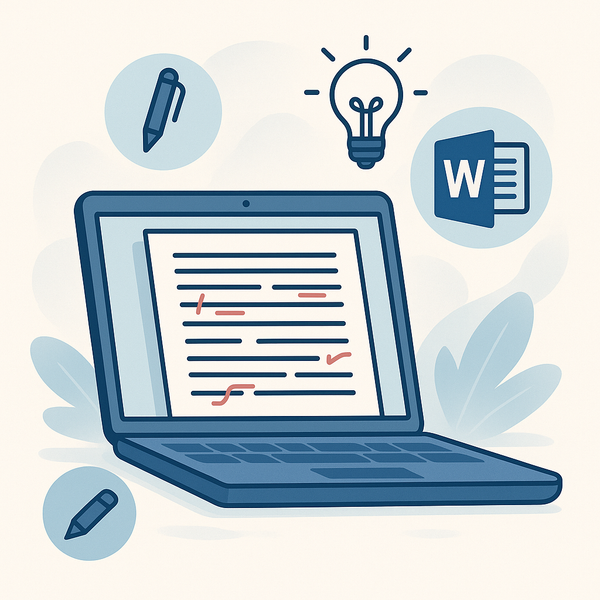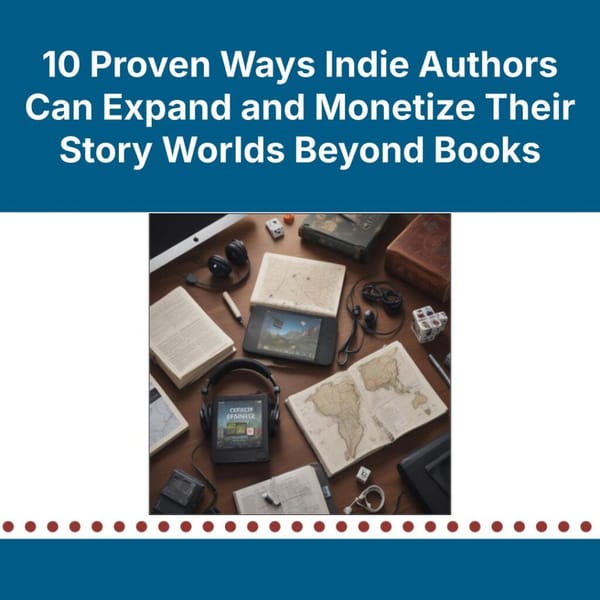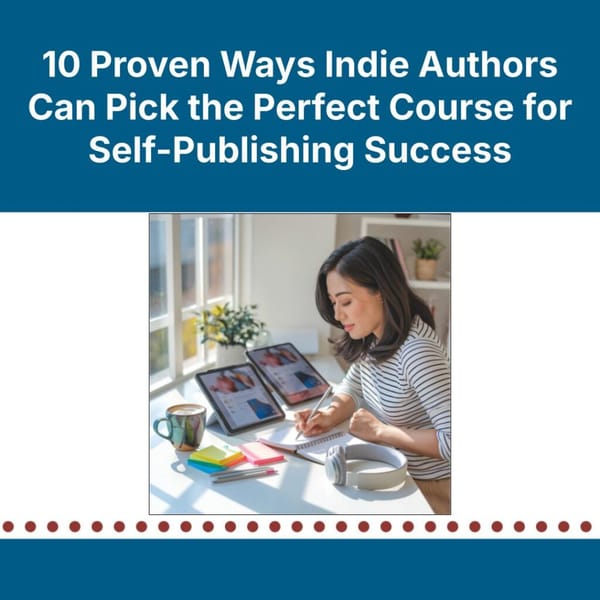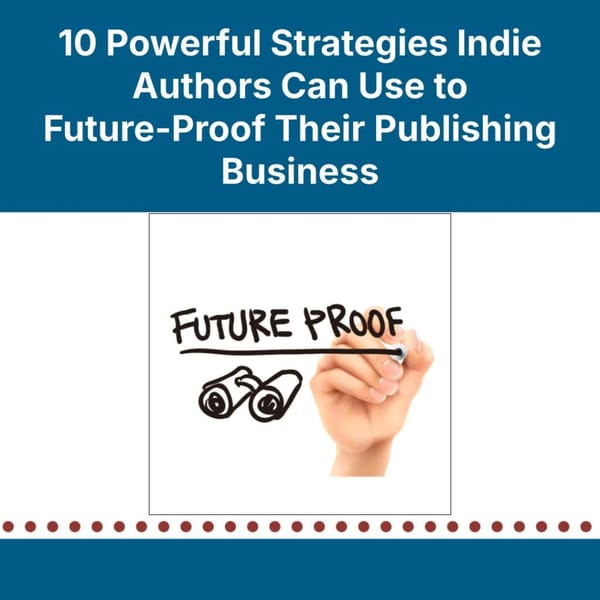Ever felt overwhelmed by the sea of faces at an author conference, unsure of where to start? Author conferences offer a wealth of opportunities to connect, learn, and grow, but navigating the throngs of people, packed schedules, and hosts of optional networking opportunities between panels can be daunting. With the right strategy, however, you can turn these events into a launchpad for your writing career.
Ahead of the first Author Nation event in Las Vegas, Nevada, later this month, we’re diving into ten practical tips, inspired by seasoned conference-goer Fatima Fayez and other industry experts, to help you make the most of your next author gathering.
1. Define Your Conference Mission.
Before you even pack your bags, take time to set clear, achievable goals. Whether it’s meeting other authors in your genre, learning about marketing strategies, or connecting with potential collaborators, knowing what you want to accomplish at any event you attend helps you focus your energy. Fayez encourages setting up pre-conference plans with friends or peers attending the event. This way, you can meet up during the conference and expand your network by connecting with their circles.
Establishing goals not only makes the event more meaningful but also prevents you from feeling overwhelmed by the sheer number of sessions and networking opportunities you’ll face. Consider using the SMART (Specific, Measurable, Achievable, Relevant, Time-bound) goal framework to ensure your goals are effective. For example, instead of a vague goal like “network with other authors,” set a specific goal like “exchange contact information with at least five authors in my genre.”
2. Map Out Your Master Plan.
Preparation is key to a successful conference experience. In the days or weeks leading up to an event, review the schedule in advance, and decide which sessions align with your goals. Fayez emphasizes the importance of checking the speaker list ahead of time and identifying which talks and panels will be most beneficial to your author career. “Not all sessions will be relevant to where you are,” she notes, “so narrow it down based on your current needs.”
Pro Tip: If you can manage it, staying in the conference hotel can make networking easier—you’ll be a familiar face as you come and go, and you won’t miss any last-minute meetups or events.
3. Pack Your Pro Toolkit.
What you bring with you can make or break your conference experience. Essentials include business cards, a notebook, chargers, comfortable walking shoes, and a reusable water bottle. What not to bring? Items you usually give away to readers. Remember, these are your peers and not your prospects.
Fayez suggests preparing business cards with a QR code that links to your contact information. One option is a link-in-bio-style webpage. This ensures your contact information remains evergreen and avoids the potential pitfalls of relying on third-party services like HiHello or other contact apps.
4. Say Hello, Then Say More.
Networking is one of the biggest reasons to attend an author conference, so come prepared to introduce yourself and your work and to spend time with other professionals at the event. Start conversations by asking people which sessions they’re excited about or what they hope to gain from the event. According to Fayez, questions like “What’s the most helpful thing you’ve learned so far?” can spark deeper discussions, especially later in the event.
Be genuine in your interactions, and don’t forget to share your contact information, whether through a physical business card or a digital alternative. The key to networking isn’t just the initial meeting—it’s the follow-up.
5. Be a Social (Media) Butterfly.
Social media can be your best friend at a conference. Engaging with event hashtags and posting live updates from sessions helps build connections, even with attendees you might not meet in person. Fayez recommends staying active on platforms like X or Instagram, not only during the conference but also afterward, to continue the conversation.
By sharing key takeaways or favorite moments, you’re contributing to the conference community and enhancing your own visibility. Consider using social media to connect with other authors, publishers, and industry professionals. You can search for relevant hashtags or join online groups related to the conference or your writing genre.
6. Let the Conference App Be Your Copilot.
Many conferences now have dedicated apps to help attendees manage their schedules and connect with others. Use the app to track sessions, make notes, and send messages to fellow attendees. Fayez highlights the importance of staying organized by keeping track of who you meet and what you discussed—something most apps can also offer.
Apps can also alert you to last-minute changes or opportunities you may have missed, so check them regularly throughout the event. As you’re preparing for the conference before you go, also visit the conference website or social media channels to see if organizers specify where you should watch for changes in the schedule or relevant news and updates during the event.
7. Hydrate, Recharge, Repeat.
Conferences can be long, and it’s easy to burn out. Stay hydrated, take breaks, and give yourself some downtime. Fayez suggests introverts or those who need extra space take advantage of quiet moments to recharge. If you’re staying at the conference hotel, use your room as a retreat between sessions.
Taking care of yourself ensures you’ll be energized for key sessions and networking opportunities rather than dragging through the day.
8. Ask the Questions that Make an Impact.
Asking good questions during panels or workshops not only helps you learn but also makes a memorable impression on speakers and fellow attendees. Fayez advises preparing a few questions in advance but also being ready to ask spontaneous ones based on the session’s content. Questions like “What was the most surprising challenge you faced during this process?” can open up new insights that presenters may not cover in the presentation.
Asking thoughtful questions can also lead to more in-depth conversations afterward, so be sure to exchange contact information with others in the audience or even with panelists after the session is over.
9. Explore the Vendor Expo Like It’s a Treasure Hunt.
Author conferences are not only about the formal sessions. The exhibition hall is often full of vendors offering services, software, or other tools that can benefit your author career. Take time to visit these booths and engage with exhibitors. Fayez encourages exchanging business cards with those whose services may be valuable and following up later to deepen the connection.
10. Capture the Wisdom.
Taking notes during sessions ensures you retain key insights, which you can refer to long after the conference. For a more efficient approach, consider taking photos of the slides and using a digital note-taking app like Notion or Evernote to mark them up with additional notes, questions, and action items.
Create a specific task list in Todoist, Notion, or the task app on your mobile device, and keep it open to jot down notes, questions, or items to do when you return from the conference. Block out time in your schedule after you return from the conference to recharge and to review your notes and follow up on any opportunities or connections you made while the information is fresh.
The real magic of an author conference often happens not during the sessions but in the connections and follow-ups that happen afterward. By planning, setting goals, and engaging with others, both in person and online, you’ll walk away from the event with valuable connections and insights that can propel your writing career forward. So pack smart, stay energized, and be sure to make the most of every opportunity to learn, network, and grow as an author.
Chelle Honiker









